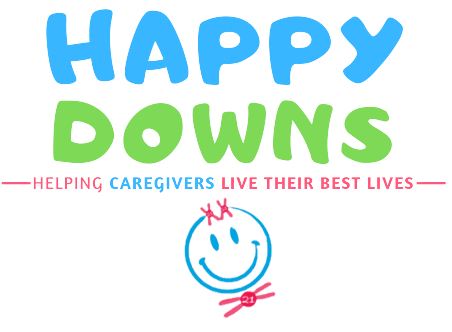Self-advocacy is about standing up for oneself, knowing one’s rights, and making decisions that affect one’s life. For individuals with Down Syndrome, this is a crucial skill that fosters independence, confidence, and empowerment. As a family caregiver, you play a vital role in nurturing self-advocacy skills in your loved one. This guide will help you create a supportive environment, develop essential communication skills, encourage decision-making, and build a strong support network.
Why Self-Advocacy Matters
Self-advocacy enhances confidence, autonomy, and life satisfaction. When individuals with Down Syndrome learn to express their needs and make choices, they experience greater control over their lives. This skill positively impacts:
- Self-esteem – Speaking up for oneself fosters a sense of value and belonging.
- Opportunities – Advocating for personal goals can lead to better educational, vocational, and social opportunities.
- Independence – Decision-making strengthens self-sufficiency and problem-solving skills.
- Community Inclusion – Challenging stereotypes helps society recognize the capabilities of individuals with Down Syndrome.
Self-advocacy is not built overnight. It requires practice, support, and encouragement. By taking intentional steps, you can guide your loved one toward confidently expressing themselves and making decisions that shape their future.
Creating A Supportive Environment
A strong foundation for self-advocacy starts with a positive and inclusive environment where individuals feel safe to express their needs. Here’s how family caregivers can foster this environment:
1. Encourage Self-Expression
- Listen attentively and validate your loved one’s feelings.
- Ask open-ended questions to encourage them to articulate thoughts and preferences.
- Create opportunities for them to share opinions at home and in social settings.
2. Promote Decision-Making in Daily Life
- Let them choose their clothes, meals, or activities.
- Provide limited, structured choices to prevent overwhelm (e.g., “Do you want to wear the red or blue shirt today?”).
- Encourage participation in household decisions, like planning a family outing or setting personal goals.
3. Model and Reinforce Advocacy Skills
- Demonstrate how to ask for help or clarification in daily situations.
- Role-play scenarios where they might need to advocate for themselves, such as ordering at a restaurant or speaking to a teacher.
- Celebrate efforts to speak up, regardless of the outcome.
Building Communication Skills for Self-Advocacy

Effective self-advocacy depends on strong communication skills. Since individuals with Down Syndrome may have varying levels of verbal ability, it’s important to support their communication preferences.
1. Use Visual Supports and Assistive Technology
- Encourage the use of picture communication boards, apps, or speech-to-text devices.
- Practice using a personal communication card that outlines their preferences, needs, and emergency contacts.
2. Practice Social Skills in Real-World Settings
- Engage in role-playing activities for common interactions, such as requesting accommodations or introducing oneself.
- Visit places where they can practice advocating for themselves, like a store or doctor’s office.
3. Teach Conflict Resolution Strategies
- Discuss ways to handle disagreements respectfully.
- Model assertive communication, emphasizing statements like “I feel…” or “I need…” rather than passive or aggressive language.
Encouraging Personal Choice and Decision-Making
Making informed choices builds self-confidence and independence. Here’s how to support decision-making development:
1. Start Small and Build Confidence
- Begin with everyday decisions like selecting a snack or choosing an activity.
- Gradually introduce more complex choices, such as budgeting an allowance or joining a social group.
2. Teach Problem-Solving Skills
- Help them weigh pros and cons before making a choice.
- Encourage reflection on past decisions—what worked, what didn’t, and what could be done differently.
3. Respect Their Decisions
- Even if you disagree, honor their choices when possible to reinforce confidence in their decision-making abilities.
- Guide them through the consequences of decisions in a supportive manner.
Empowering Through Education
Education plays a vital role in equipping individuals with the knowledge and skills to advocate for themselves. Family caregivers can support learning in these key areas:
1. Teach Self-Awareness and Strengths
- Help them identify their interests, strengths, and areas for growth.
- Encourage self-reflection through journaling, discussions, or simple worksheets.
2. Educate on Rights and Responsibilities
- Teach them about their rights in school, work, and healthcare.
- Use simple language to explain legal rights, such as accessibility laws and workplace accommodations.
3. Develop Practical Life Skills
- Provide hands-on experience with money management, transportation, and scheduling.
- Support learning through community-based programs, vocational training, or mentorship opportunities.
Building A Support Network

A reliable support system enhances self-advocacy by providing guidance and encouragement. Caregivers can help by:
1. Connecting with Advocacy Groups
- Encourage participation in local or online Down Syndrome advocacy groups.
- Seek out mentorship programs where they can learn from experienced self-advocates.
2. Fostering Peer Relationships
- Support friendships with individuals who share similar experiences.
- Arrange social outings or group activities where they can practice advocacy skills.
3. Encouraging Community Engagement
- Help them participate in community meetings, clubs, or volunteer opportunities.
- Assist in finding speaking engagements where they can share their experiences and insights.
Overcoming Challenges And Staying Motivated
Like any skill, self-advocacy comes with challenges. Here’s how family caregivers can help sustain progress:
1. Address Common Barriers
- Acknowledge societal misconceptions and teach resilience against stereotypes.
- Ensure accessibility to resources, whether it’s communication aids or support networks.
2. Encourage Perseverance
- Break goals into manageable steps to maintain motivation.
- Celebrate every milestone, big or small, to reinforce progress.
3. Reinforce Self-Empowerment
- Use positive reinforcement to highlight their capabilities.
- Remind them that their voice matters and their contributions are valuable.
Self-Advocacy In Individuals With Down Syndrome
Self-advocacy is a lifelong journey, and family caregivers are instrumental in nurturing this essential skill. By creating a supportive environment, fostering communication, encouraging decision-making, and building a strong support network, you can empower your loved one with Down Syndrome to confidently navigate life’s opportunities and challenges. With patience, practice, and persistence, they can become strong self-advocates who shape their own future with confidence and independence.





